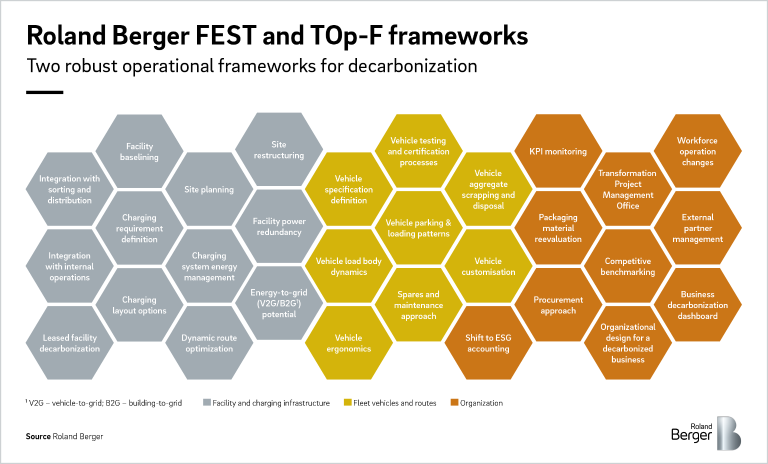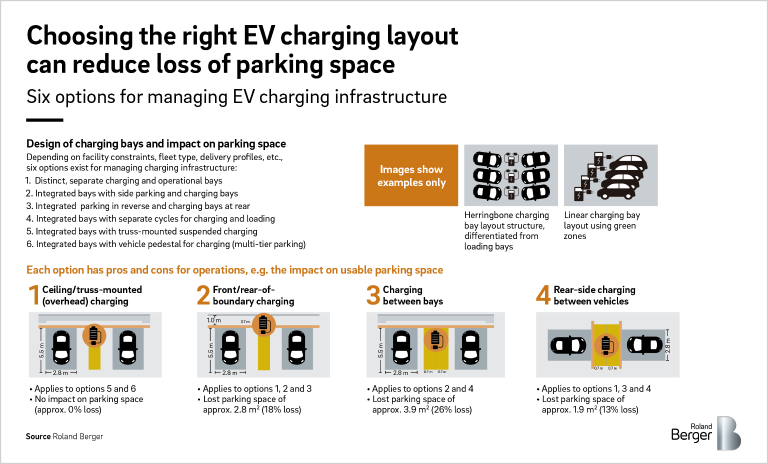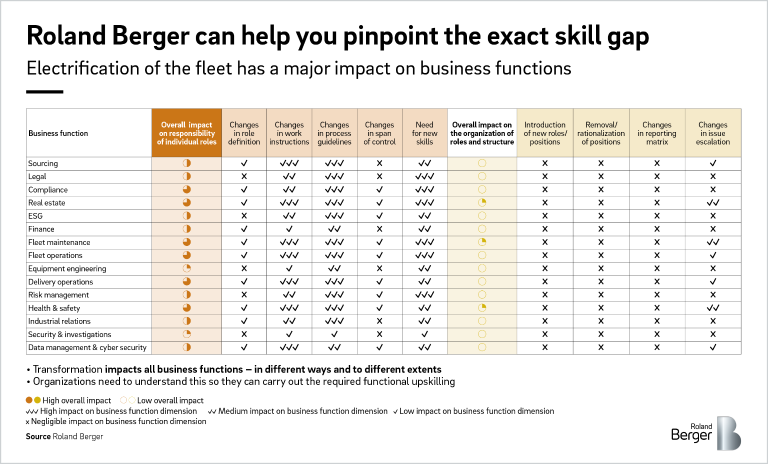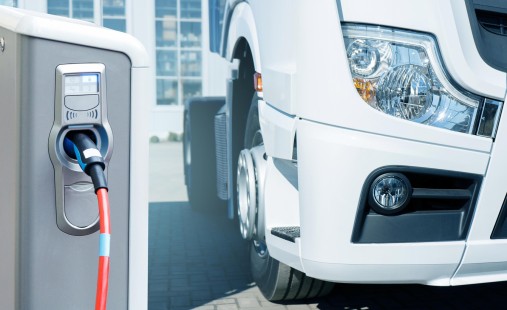Smart Mobility contributes to a more sustainable and value-adding state of mobility. Find out more about new mobility scenarios for our society here.


Fleet electrification
Electrifying your fleet also requires an organizational transformation. Make sure you plan your journey well
Operators of vehicle fleets are under increasing pressure from investors and governments to reduce their carbon emissions. However, switching over to a fleet made up entirely of electric vehicles (EVs) is an extremely time-consuming, expensive and potentially risky undertaking - and one that most organizations are inadequately prepared to address. Fleet operators need robust, tried-and-tested, pragmatic solutions for the switch to EVs. Roland Berger has developed a range of tools for supporting transportation providers with both planning and executing the transition.

Growing pressure to act
Multiple factors are pushing owners of vehicle fleets to accelerate their electrification journey. Besides pressure from stakeholders to cut emissions, a better financial case for making such a transition is also emerging, mainly due to growing cost parity between EVs and internal combustion engine (ICE) vehicles, with the total cost of ownership (TCO) already lower for EVs in several fleet use cases. The capabilities of vehicles are also rapidly changing, with a higher penetration of electronics, digital and telematics solutions, creating a real opportunity to optimize spend on fleet digitalization and vehicle procurement. New formats for mobility and delivery aimed at increasing customer retention are developing, leading to more revenue per customer. Cost efficiencies in addressing customer needs are also increasing.
As a result, most fleet managers now face urgency from stakeholders and business environments to deliver on their green agendas and drive electrification – an issue of social responsibility now increasingly linked to market competitiveness. It is also widely accepted that fleet operators left behind in the green transition risk losing market share and business model relevance. As market perception and valuations become increasingly linked to companies' ESG performance, company boards are now more acutely aware of both the upside for performers on the EV adoption agenda and the higher risks for entities that lag behind.
Our solutions
Operators of fleets, whether public-sector enterprises or privately held, are searching for the best way to maximize benefits while efficiently deploying capital, resources and time. Switching to an EV fleet involves not only a multi-layered operational challenge, but also a related organizational challenge. Here, our analyses show that different solutions are possible, ranging from diffused skills to centralized action groups that drive the change to electric.
As cutting emissions involves major investment over a number of years, operators of vehicle fleets require methodologies that have been tried and tested. Roland Berger - the global preferred consulting, thought leadership and operationalization partner for going electric - has developed two powerful operational frameworks for decarbonization: the Roland Berger Fleet Electrification Strategic Toolkit FEST and the Roland Berger Toolkit for the Operational Transformation of Fleets TOp-F. Together, they comprise more than 30 specific modules that can help transportation providers plan and implement their transition to electric vehicles.
To take an example, one of the Toolkit modules looks at EV charging layout options. The design and installation of charging bays for electric vehicles has a direct influence on the amount of space available for parking fleet vehicles. Depending on facility constraints, type of EV fleet, delivery profiles and so on, fleet operators have a choice of six solutions for planning and managing their charging infrastructure for electric cars.
Fleet electrification has a major impact on business functions, and operators of fleets of vehicles must decide on the best organizational structure for their company. A popular choice is a centralized model with a dedicated Transformation Project Management office. This is covered in another of the consulting modules in our Toolkits.
The road to success
As the global focus on renewable energy and sustainability increases, more and more providers of fleets of vehicles are moving towards full electrification. For the switch to EVs to be successful, companies must involve a wide variety of internal and external stakeholders, and regular communication and consensus-building are a must. Those involved in fleet management will also need a well-defined roadmap that clearly lays out all the key activities to be undertaken across all the relevant workstreams during the installation of the electric fleet.
Roland Berger can put you on the right road to electrification. To find out how you can benefit from our consulting expertise and implement our solutions, please contact one of our fleet electrification experts.
Register now to download the full study “Fleet Electrification " with key insights, new developments as well as future challenges for players in the automotive industry. In addition, you will receive regular insights into electronic mobility topics.












